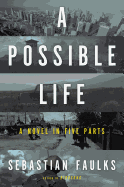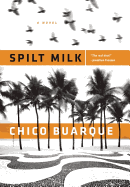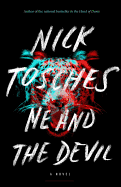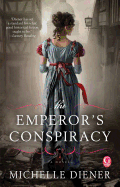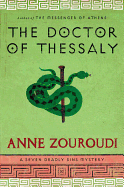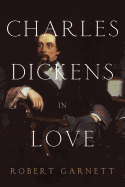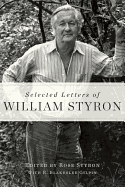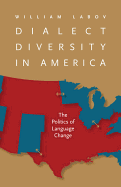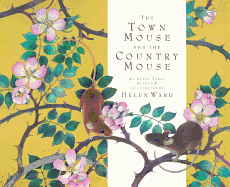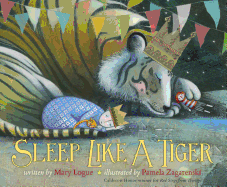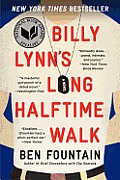 Billy Lynn's Long Halftime Walk by Ben Fountain (Ecco, $14.99)
Billy Lynn's Long Halftime Walk by Ben Fountain (Ecco, $14.99)
Ben Fountain has written a truly wondrous first novel, the story of Bravo Squad, eight brave survivors of a horrendous firefight with Iraqi insurgents who are being celebrated (and overwhelmed) at Texas Stadium on Thanksgiving Day. They are feted, made part of the halftime show and projected on the Jumbotron--then dropped when their marginal utility has been served. This is a sad story about what war does to us, all of us.
The Confession by Charles Todd (Morrow, $14.99)
When a man walks into Scotland Yard claiming his name is Wyatt Russell, and that he murdered his cousin Justin Fowler during the Great War, war-scarred Inspector Ian Rutledge drives down to the small Essex village where the two men came from. He discovers an isolated, unfriendly place, whose people are in a hurry to get rid of strangers, and a further mystery when Wyatt Russell is found floating in the Thames.
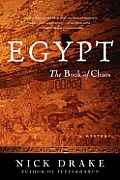 Egypt: The Book of Chaos by Nick Drake (Harper, $14.99)
Egypt: The Book of Chaos by Nick Drake (Harper, $14.99)
Egypt: The Book of Chaos is the concluding novel of Nick Drake's ancient Egyptian trilogy, after Nefertiti and Tutankhamun. Rahotep has fallen from his position of power in the Thebes Medjay (police), consigned by his viciously petty boss to only the most superficial aspects of investigations--including the appallingly cruel murder of five young low-level opium runners. This tightly crafted, brooding plunge into the frightening fin de siècle of the XVIIIth dynasty will leave readers satisfied as well as regretful that The Book of Chaos is the last in Drake's series.
The House at Sea's End by Elly Griffiths (Mariner Books, $14.95)
Forensic archeologist and college professor Ruth Galloway is having a hard time juggling the demands of her life, and things get worse when a team studying coastal erosion discovers what turns out to be a mass grave. Were the deaths accidental or the result of foul play? Galloway and Detective Chief Inspector Harry Nelson unearth a World War II murder plot in the third book in Griffiths's mystery series.
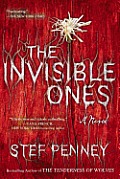 The Invisible Ones by Stef Penney (Berkley Trade, $16)
The Invisible Ones by Stef Penney (Berkley Trade, $16)
Ray Lovell is a private investigator so haunted by an earlier case that he's vowed to never take on another missing persons job. Nevertheless, when a desperate father asks Ray to find his daughter who disappeared seven years ago, he agrees. Penney's first literary thriller, The Tenderness of Wolves, won the Costa Book Award for debut novel in 2006. The Invisible Ones lives up to that pedigree, with a genuinely baffling mystery that takes Ray Lovell well along one path before veering into a direction that will catch most readers off guard.
The Lost Ones by Ace Atkins (Berkley Trade, $16)
When Ace Atkins introduced Quinn Colson in 2011's The Ranger, the army Ranger came home on leave and exposed a corruption ring responsible for the death of his uncle, the local sheriff. In the sequel, The Lost Ones, Colson is done with military service and wearing the sheriff's uniform when the suspicious death of a foster child leads him into a hornet's nest of illegal activity, including running guns and selling children.The second novel in the series is a multi-layered crime novel that proves Ace Atkins is anything but lost in this genre.
The Technologists by Matthew Pearl (Random House, $16)
Matthew Pearl gives us a historical thriller set in 19th-century Boston, drawing readers into another stylish mystery with some real people and grounded in fact. One April morning in 1868, in foggy Boston Harbor, compasses on ships go crazy, with disastrous results. A team of young MIT students uses science to investigate the mysterious goings-on, while labor unions and religious activists worry about scientific progress.
The Underside of Joy by Seré Prince Halverson (Plume, $16)
After three years of marriage, Ella thought she knew everything she needed to know about Joe. But when Joe drowns, he takes secrets with him, leading to a custody battle. Halverson's debut novel is a faultless exploration of sadness and shame, anger and forgiveness; a story well told about people we would like to know.
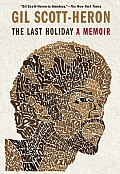 The Last Holiday by Gil Scott-Heron (Grove Press, $16)
The Last Holiday by Gil Scott-Heron (Grove Press, $16)
If you were young in the 1960s and '70s or were "black and proud" or saw the Temptations play the Apollo, you still might not know Gil Scott-Heron (although you've probably heard of his most famous work, "The Revolution Will Not Be Televised"). A poet, novelist and, most famously, writer of jazzy, talking, political blues, Scott-Heron died in May 2011 after a long downward spiral through crack, prison, parole and, finally, crack again. Fortunately, in 2003 he began to write a memoir chronicling his Tennessee family, his incessant drive for education and his successful music career--including a key role in Stevie Wonder's 1981 concert promoting a holiday to honor Martin Luther King Jr.'s birthday, from which The Last Holiday gets its title.
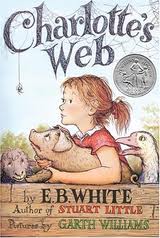 Now is the time to pull out your family's favorite books: Charlotte's Web, The Little Prince, Winnie the Pooh, The Wind in the Willows. Their association with happier days comforts us during this time of distress. These are books the entire family--including teenagers--can gather together to read and reread.
Now is the time to pull out your family's favorite books: Charlotte's Web, The Little Prince, Winnie the Pooh, The Wind in the Willows. Their association with happier days comforts us during this time of distress. These are books the entire family--including teenagers--can gather together to read and reread.


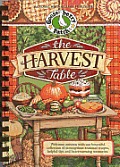 For a peripatetic population pining for home,
For a peripatetic population pining for home, 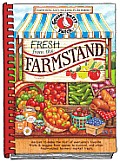 "Dukabor Soup" in fresh Fresh from the Farmstand: Recipes to Make the Most of Everyone's Favorite Fruits & Veggies from Apples to Zucchini, and Other Fresh Picked Farmers' Market Treats began as a recipe from a Canadian contributor's Ukrainian neighbor; she added Italian sausage to satisfy her husband's penchant for spice. The Harvest Table: Welcome Autumn with Our Bountiful Collection of Scrumptious Seasonal Recipes, Helpful Tips and Heartwarming Memories has a pumpkin spice muffin recipe from Keene, N.H., a town that holds the lit jack-o-lantern record (29,381 for 2012). The mini-memoirs in these cookbooks are as satisfying as the recipes!
"Dukabor Soup" in fresh Fresh from the Farmstand: Recipes to Make the Most of Everyone's Favorite Fruits & Veggies from Apples to Zucchini, and Other Fresh Picked Farmers' Market Treats began as a recipe from a Canadian contributor's Ukrainian neighbor; she added Italian sausage to satisfy her husband's penchant for spice. The Harvest Table: Welcome Autumn with Our Bountiful Collection of Scrumptious Seasonal Recipes, Helpful Tips and Heartwarming Memories has a pumpkin spice muffin recipe from Keene, N.H., a town that holds the lit jack-o-lantern record (29,381 for 2012). The mini-memoirs in these cookbooks are as satisfying as the recipes!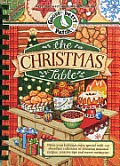 The Christmas Table: Make Your Holidays Extra Special with Our Abundant Collection of Delicious Seasonal Recipes, Creative Tips and Sweet Memories, divided into "events" sections (Cozy Christmas Brunch, Caroling-Party Supper, Sweet Treats to Share) includes time-saving tips that harried hostesses will appreciate.
The Christmas Table: Make Your Holidays Extra Special with Our Abundant Collection of Delicious Seasonal Recipes, Creative Tips and Sweet Memories, divided into "events" sections (Cozy Christmas Brunch, Caroling-Party Supper, Sweet Treats to Share) includes time-saving tips that harried hostesses will appreciate. Billy Lynn's Long Halftime Walk
Billy Lynn's Long Halftime Walk Egypt: The Book of Chaos
Egypt: The Book of Chaos The Invisible Ones
The Invisible Ones The Last Holiday
The Last Holiday